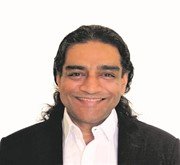 Life is a constant dance with change. New jobs, new relationships, even seemingly mundane things
Life is a constant dance with change. New jobs, new relationships, even seemingly mundane things
like a traffic jam or a rainy day – all throw a curveball into our carefully constructed routines.
Sometimes, these changes are exciting, propelling us forward. Other times, they feel like a hurricane, leaving us stressed, disoriented, and overwhelmed. The key to navigating this ever-shifting landscape isn’t about finding coping mechanisms to get through the tough times. It’s about building resilience – the ability to bounce back from challenges and emerge stronger.
While there are many paths to resilience, one often-overlooked practice stands out: Qigong
(pronounced "chee-go). This ancient Chinese technique is more than just graceful movements
and controlled breathing. It’s a powerful tool for cultivating a deep sense of harmony between your
body, mind, and spirit – the very foundation of resilience.
Why is Qigong the Ultimate Habit for Change?
Imagine Sarah, a high-pressure executive facing a major career transition. The stress of the unknown leaves her feeling anxious and constantly on edge. Sleep is a distant memory and her productivity
plummets. This is where Qigong steps in. By incorporating gentle Qigong movements with focused breathing exercises, Sarah starts to reconnect with her body. As she becomes more aware of her physical tension, she can begin to release it, not just physically, but also emotionally. The slow, deliberate movements bring a sense of calm to her mind, replacing the constant chatter of worry with a quiet focus.
Over time, Sarah starts to view change not as a threat, but as an opportunity for growth. The
resilience she builds through Qigong allows her to navigate the challenges of her transition with
grace and confidence. This isn’t just a fictional scenario. A 2017 study published in the Journal of Clinical Medicine. Research found that practicing Qigong for just 12 weeks significantly reduced stress and anxiety in participants. The benefits extend beyond emotional well-being. Qigong has also been shown to improve sleep quality, boost the immune system, and increase energy levels – all crucial for navigating life’s ups and downs.
Beyond Hacks: Building Lifelong Resilience
Unlike some coping mechanisms that offer temporary relief, Qigong equips you with the tools to
manage stress and adversity throughout your life. It’s not a one-time fix; it’s a lifelong habit that empowers you to face whatever challenges come your way.
Think of John, a convalescing student struggling with the physical limitations of a foot injury. His
once-active lifestyle feels like a distant memory, replaced by aches and painful memories of his
accident. Through Qigong, John discovers a way to move his body gently, improving his flexibility and balance. More importantly, he finds a renewed sense of purpose and connection to his body.
Qigong doesn’t promise to turn back time, but it allows John to embrace the present moment with acceptance and grace. He learns to manage his limitations while nurturing a sense of well-being that transcends his physical age.
Are You Ready to Build Your Resilience Habit?
The world throws enough curveballs our way. Don’t settle for simply coping. Take control and build resilience that lasts. Qigong offers a powerful solution, but the question remains: Are you ready to embark on this transformative journey?
Here’s your call to action:
- Take the Stress Quiz: Take a quick, free quiz at https://bit.ly/stress-score to know how stressed you truly are. You will get a customized report and your personal stress score.
- Start Your Qigong Journey: Join my comprehensive online Qigong video program, supported by live instruction. Learn from the comfort of your own home and discover the power of Qigong to transform your life.
Don’t wait for change to overwhelm you. Start building your resilience habit today, with the power of Qigong by your side.
By Sandeep Nath
Founder RENEWALism, Inner Power Coach, Ex-Board Director GYMHA
